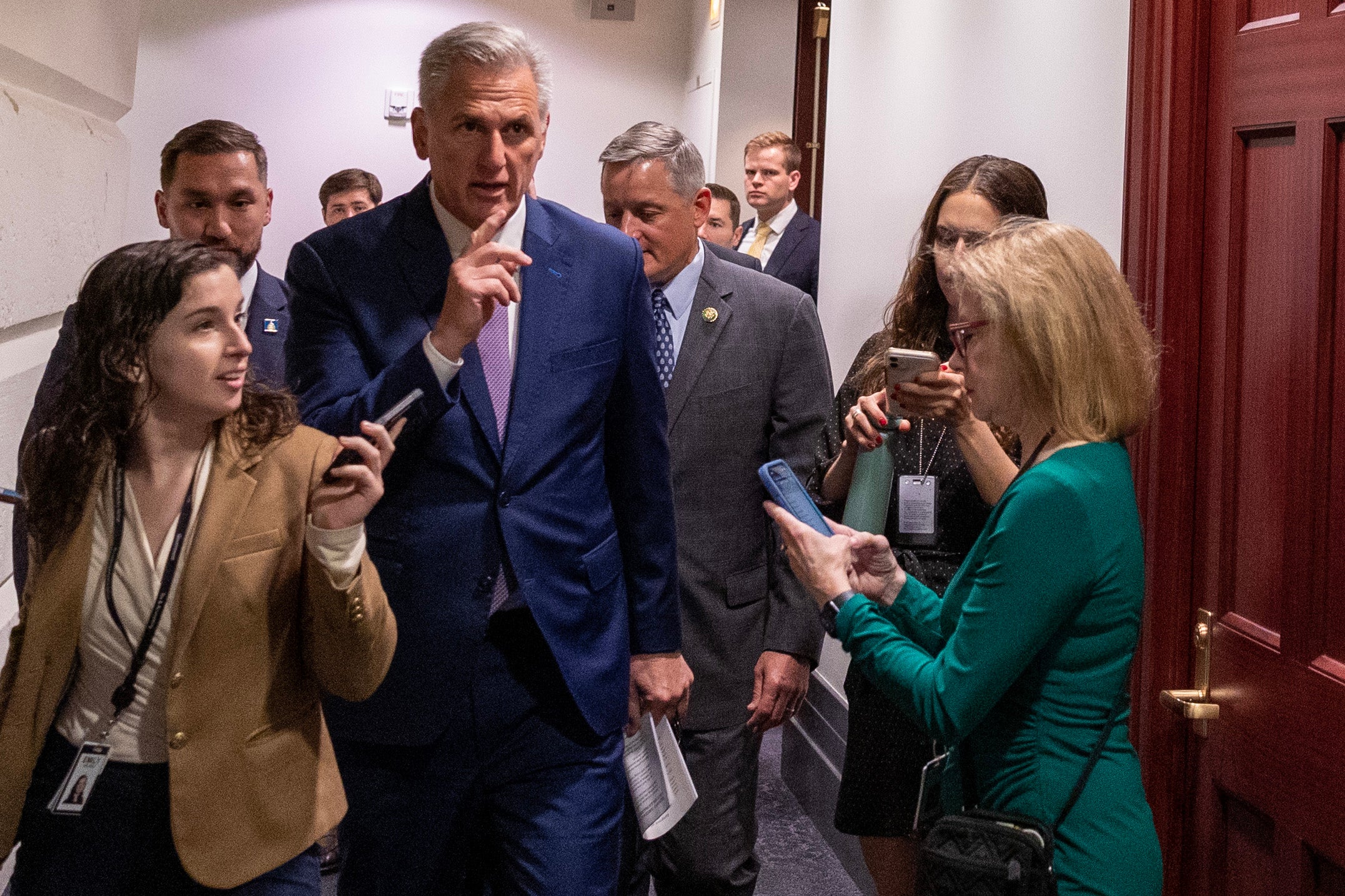House Republicans’ debt limit agreement is dead on arrival in the Senate. So why are they doing it?
House Republicans’ debt limit bill won’t pass. But they are laying down a dividing line


Your support helps us to tell the story
From reproductive rights to climate change to Big Tech, The Independent is on the ground when the story is developing. Whether it's investigating the financials of Elon Musk's pro-Trump PAC or producing our latest documentary, 'The A Word', which shines a light on the American women fighting for reproductive rights, we know how important it is to parse out the facts from the messaging.
At such a critical moment in US history, we need reporters on the ground. Your donation allows us to keep sending journalists to speak to both sides of the story.
The Independent is trusted by Americans across the entire political spectrum. And unlike many other quality news outlets, we choose not to lock Americans out of our reporting and analysis with paywalls. We believe quality journalism should be available to everyone, paid for by those who can afford it.
Your support makes all the difference.House Republicans cleared a major hurdle on Wednesday when they passed a rule to tee up a vote on the debt limit. This came after long nights of negotiations. The vote was almost exclusively along party lines, with every Republican present voting for it and every Democrat present voting against it (though two Republicans and three Democrats did not vote).
This sets up a vote later on Wednesday on the debt limit after arduous hours of House Speaker Kevin McCarthy trying to corral his members and a House Rules Committee session that went into the wee hours of the morning. The bill would impose work requirements on welfare programs and repeal large swaths of President Joe Biden’s signature Inflation Reduction Act.
Not surprisingly, Senate Democrats swatted down the idea that they would swallow such a bill as preposterous.
“And the reason they have to stuff it in this bill is because it's not popular,” Senator Brian Schatz of Hawaii, one of the most outspoken voices on combatting the climate crisis, told me. “And the reason that they put it in this bill is the one thing that unites this totally disjointed and disorganized Republican Party is their unending enthusiasm for making climate change worse.”
Senator Jeff Merkley of Oregon was even more blunt in his assessment.
“This bill is DOA,” he said. “And what they're really trying to do is spend two-thirds of the bill trying to put more fossil fuel, climate warming gases into the air. They're hellbent on destroying the planet instead of making America thrive.”
President Joe Biden also called the bill a nonstarter.
“Happy to meet with McCarthy but not on whether or not the debt limit gets extended,” he said. “That's not negotiable.”
On top of that, it’s not even entirely clear that the bill will even pass. Some Republicans are still a hard “no” and when Republicans have only the thinnest of majorities, going into a vote without absolute confidence means taking a risk.
So why are Republicans risking it?
For one, Mr McCarthy needs to show he can win over all of the disparate factions of his coalition. After a protracted fight to win the speaker’s gavel, Mr McCarthy has been on somewhat of a honeymoon period with House Republicans. He even got Mr Biden to sign legislation that nullified Washington DC’s revised criminal code.
But the debt limit loomed in the background, and he always knew he would need to satisfy varying parts of the House GOP Conference. The current debt limit bill will almost certainly not pass in its current iteration, but he needs to show he can fight for conservative ideals when some in the House GOP still don’t see him as sufficiently supportive of them.
Second, passing the bill puts the ball firmly in Mr Biden and Senate Majority Leader Chuck Schumer’s court. Up until this point, Mr Biden has held the cards in the negotiations, saying that Mr McCarthy needs to release his own plan, knowing it would be difficult to unite the warring factions within the House.
Now, Mr McCarthy has leverage and even if Mr Biden doesn’t agree to every provision (or even most of them), he can successfully he say he got Mr Biden to agree to at least some spending cuts.
Of course, this is all predicated on the debt limit package actually passing, which is far from certain at the moment since some of the very people who opposed Mr McCarthy’s bid for speaker will probably push back on this proposal. And if it actually passes, Mr Biden can then create a firm contrast between his proposal and Mr McCarthy’s.
But Mr McCarthy is hoping to set the stage to make himself seem stronger than he was in the first round of debt limit negotiations.



Join our commenting forum
Join thought-provoking conversations, follow other Independent readers and see their replies
Comments